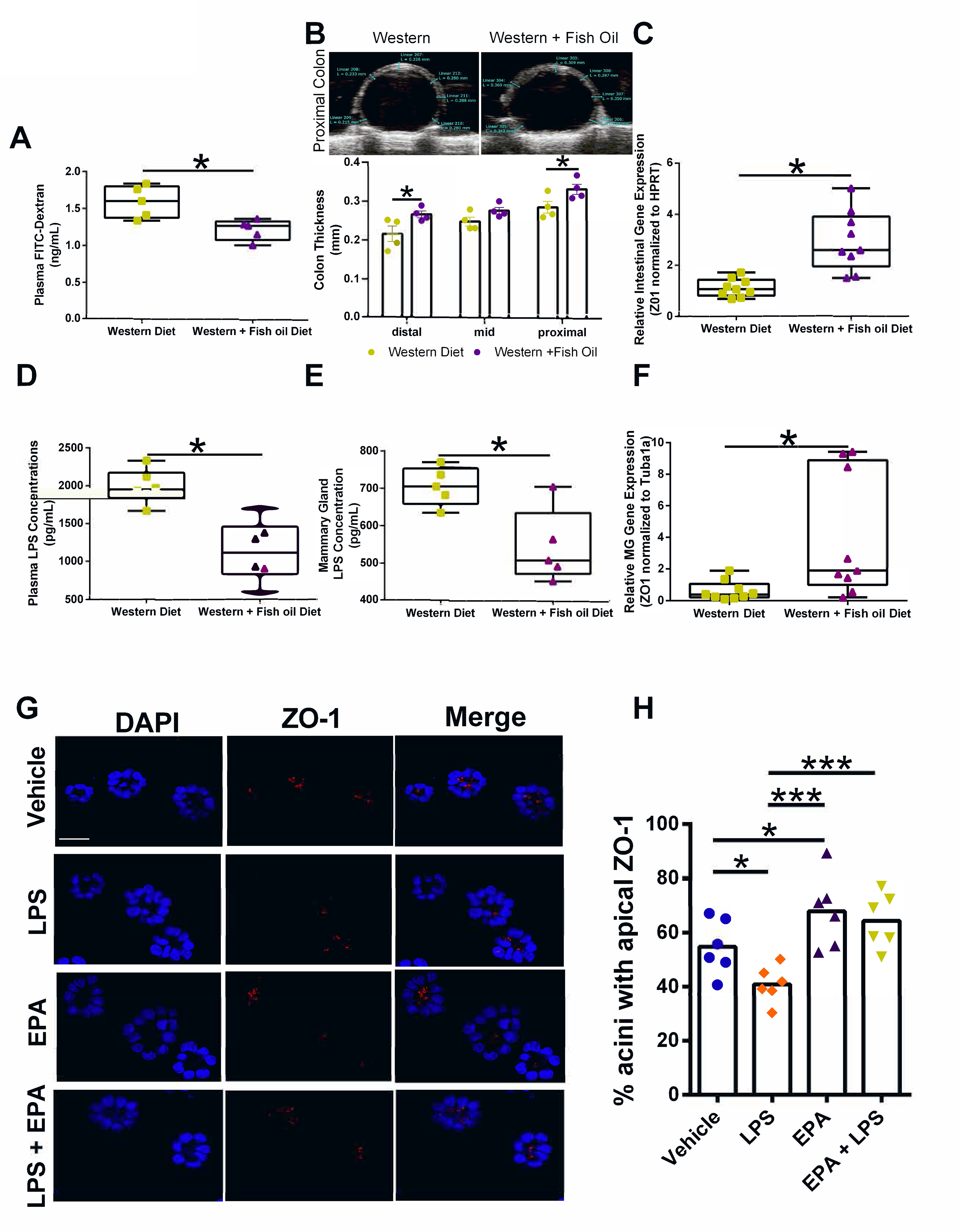Figure 6.

Fish oil supplementation modifies intestinal permeability, LPS bioavailability, and breast acini polarity. A. Plasma FITC-dextran concentrations in 16-week old female C57BL/6 mice fed a Western or Western + fish oil diet. n=5; *p<0.05. B. Colon thickness (proximal, mid, and distal colon measurements) determined by Vevo ultrasound in concentrations in 16-week old female C57BL/6 mice fed a Western or Western + fish oil diet. n=4; *p<0.05. C. Relative ZO-1 gene expression normalized to HPRT in intestinal tissues from Western or Western + fish oil supplemented n=9; *p<0.05. D. Plasma LPS concentration n=6, *p<0.05. E. Mammary gland LPS concentration. n=5, *p<0.05. F. Relative ZO-1 gene expression normalized to Tubu1a in mammary gland tissues from Western or Western + fish oil supplemented n=9; *p<0.05. G. Representative images of mammary acini structures treated with LPS, EPA, or a combination of LPS+EPA. Scale bars, 100 μm. H. Effects of n-3 PUFA on LPS apical polarity disruption measured by ZO1 localization. n=6; *p<0.05.
